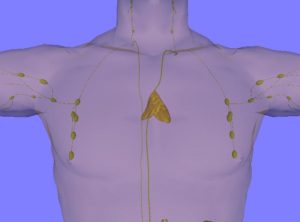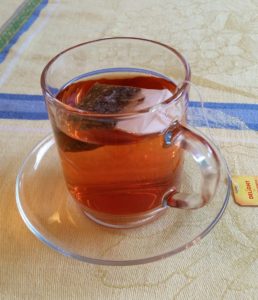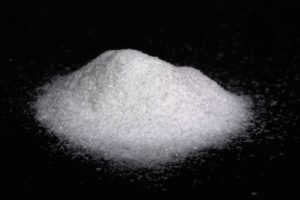 We've known for a while that exercise and physical activity lower the risk of developing heart disease. It turns out that a good exercise that many of us do in the course of ordinary life is walking up and down stairs. Yes, that counts!
We've known for a while that exercise and physical activity lower the risk of developing heart disease. It turns out that a good exercise that many of us do in the course of ordinary life is walking up and down stairs. Yes, that counts!
A large study (458,860 adults) used data from the UK (Biobank). They found that walking up 5 flights of stairs (about 50 steps) daily was associated with a 20% lower risk of developing heart disease (including ischemic strokes) after 5 years.
Interestingly, persons who were stair climbers at the beginning of the study, but then stopped at some point during the 5 year length of the study had a higher risk of heart disease than those who never climbed stairs.
Bottom line: Walk up stairs whenever you can. It's good for your heart!
From Science Daily: Walking more than five flights of stairs a day can cut risk of heart disease by 20 percent, study says
Forget walking 10,000 steps a day. Taking at least 50 steps climbing stairs each day could significantly slash your risk of heart disease, according to a new study from Tulane University. ...continue reading "Daily Walking Up Stairs Lowers the Risk of Heart Disease"

 A recent large study found another great reason for being physically active. The
A recent large study found another great reason for being physically active. The 
 A recent study was good news for those wishing to lower their chances of developing heart disease (cardiovascular disease) without the use of medications. Instead, focus on the foods you eat, specifically those in a Mediterranean-style diet.
A recent study was good news for those wishing to lower their chances of developing heart disease (cardiovascular disease) without the use of medications. Instead, focus on the foods you eat, specifically those in a Mediterranean-style diet.
 Some good news for those finding it hard to find time or motivation for lengthy exercise sessions. It turns out that frequent little bursts of exercise about 1 to 2 minutes long also have tremendous health benefits, even if you spend most of the day sitting. Think of them as "exercise snacks".
Some good news for those finding it hard to find time or motivation for lengthy exercise sessions. It turns out that frequent little bursts of exercise about 1 to 2 minutes long also have tremendous health benefits, even if you spend most of the day sitting. Think of them as "exercise snacks". Some good news. A study found that frequent consumption of foods and beverages containing flavonoids by elderly women had health benefits. Flavonoids are compounds found naturally in plants, and that have health-promoting effects.
Some good news. A study found that frequent consumption of foods and beverages containing flavonoids by elderly women had health benefits. Flavonoids are compounds found naturally in plants, and that have health-promoting effects.
 It seems that every so often another study finds that daily coffee consumption is healthy for a person. A recent
It seems that every so often another study finds that daily coffee consumption is healthy for a person. A recent  Another recent study found that consuming artificial sweeteners do harm. In August a study found that artificial sweeteners alter both
Another recent study found that consuming artificial sweeteners do harm. In August a study found that artificial sweeteners alter both